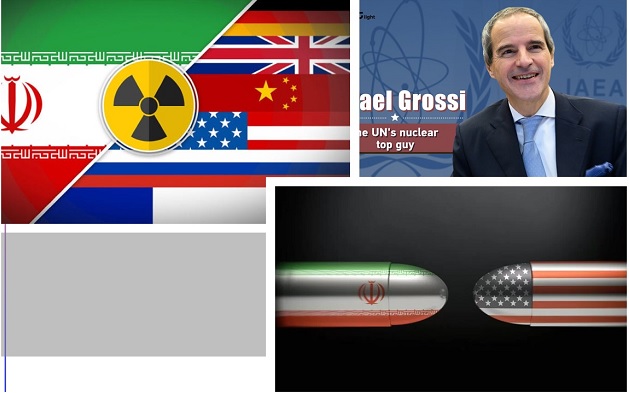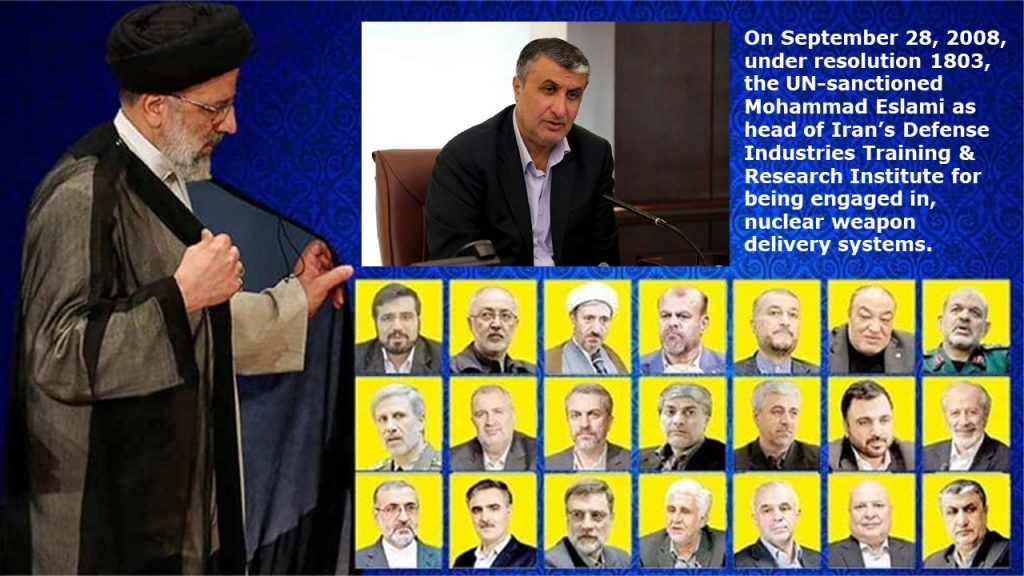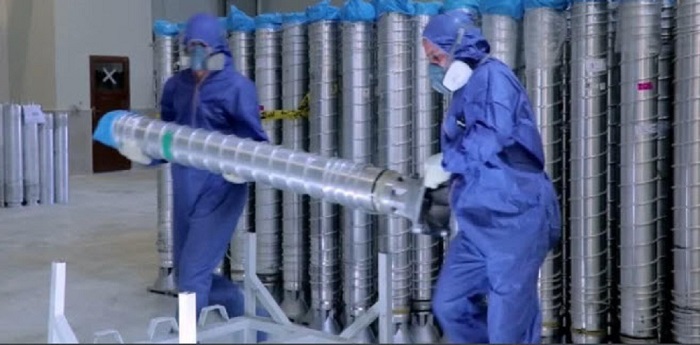
(NCRI) and (PMOI / MEK Iran): While a breakthrough is unlikely, observers believe the talks, which begin on November 29 in Vienna, will reveal how Tehran would approach.
After a long absence that reflects negatively on the future of the landmark deal, indirect talks between Iran and the US to restore the nuclear deal are due to resume next week. While a breakthrough is unlikely, observers believe the talks, which begin on November 29 in Vienna, will reveal how Tehran would approach diplomacy under conservative President Ebrahim Raisi, whose government has raised Iranian demands in preparation for a return to the agreement.
We’re going to find out if Raisi will be a little softer
“We’re going to find out how different these [Iranian] hardliners are from previous hardliners; we’re going to find out if they’re going to be a little softer,” said Negar Mortazavi, an Iranian-American journalist and analyst.
“We’ll also see if the Americans have truly recognised that they have missed an opportunity and that they should reconsider their position.”
Supporters of the deal, like Mortazavi, have chastised US President Joe Biden for failing to act quickly to reinstate the agreement during his first months in office when a more moderate Iranian government led by former President Hassan Rouhani was in power.
Progressive groups have urged Biden to make “goodwill gestures” toward Iran ahead of the negotiations, such as unfreezing some Iranian assets held under American sanctions for humanitarian reasons. Despite declaring outgoing President Donald Trump’s “maximum pressure” campaign against Iran a failure, the Biden administration has continued to implement Trump’s sanctions while also imposing new ones.

(PMOI / MEK Iran) and (NCRI):Iran: Mohammad Eslami, the new head of the regime’s Atomic Energy Organization was the principal liaison with Abdul Qadeer Khan to acquire knowledge of the atomic bomb.
Meanwhile, Iran has ramped up its nuclear programme, which was formerly restrained by the agreement. It is enriching uranium at a rate of 60%, rather than the 3.67 percent allowed by the agreement. It also employs more sophisticated centrifuges.
Tehran claims its nuclear activities are for peaceful purposes, but US officials warn that recent developments in Iran’s nuclear programme have drastically decreased the “breakout time” required for the country to gather enough material for a nuclear bomb.
Officials from the United States and Israel have raised the alarm about the nuclear threat. Israel has vowed to “act” against Iran at any time if the Joint Comprehensive Plan of Action (JCPOA) is not implemented. If diplomacy fails, Biden and his closest aides have talked of “other options” against Iran.
If the Iranians refuse to return to the JCPOA, the US’s envoy for Iran, Robert Malley, said National Public Radio (NPR) this week that the US is considering “other efforts – diplomatic and otherwise.” “Of course, we will not be prepared to sit idly by if they start getting too close, too close for comfort,” he warned.

(PMOI / MEK Iran) and (NCRI): mullahs supporting its terrorism network and maintaining its clandestine nuclear program. This measure would have a significant impact on Iran’s ailing economy and exacerbate the country’s unrest.
The US is travelling to Vienna after its Gulf Arab partners pledged public support for American attempts to salvage the JCPOA during Malley’s visit to the region last week. A return to full compliance with the deal “would help pave the way for inclusive diplomatic efforts to address all issues that are necessary to ensure sustainable safety, security, and prosperity in the region,” the US and the Gulf Cooperation Council’s working group on Iran said in a joint statement on November 17.
The Biden administration has attempted to align its position with the E3 – Germany, the United Kingdom, and France – who are the deal’s three European signatories. Last week, Malley also met with Russian and Chinese diplomats. Nonetheless, the reopening of the Vienna negotiations comes at a politically sensitive time for Biden at home.
While the JCPOA is still popular among Americans, public opinion polls show that some leading Democrats in Congress are sceptical of the agreement, and Republicans are almost unanimously opposed to it. The deal can be restored through executive action, but it will take political capital from the president, whose Democratic Party controls only a small majority in the Senate and House of Representatives. Any concessions made by the US to Iran will almost certainly be met with backlash at home.
Fitting a Square Peg into a Round Hole with Iran Negotiations.
MEK Iran (follow us on Twitter and Facebook)
and follow Maryam Rajavi’s on her site 
and follow NCRI (Twitter & Facebook) and People’s Mojahedin Organization of Iran – MEK IRAN – YouTube
